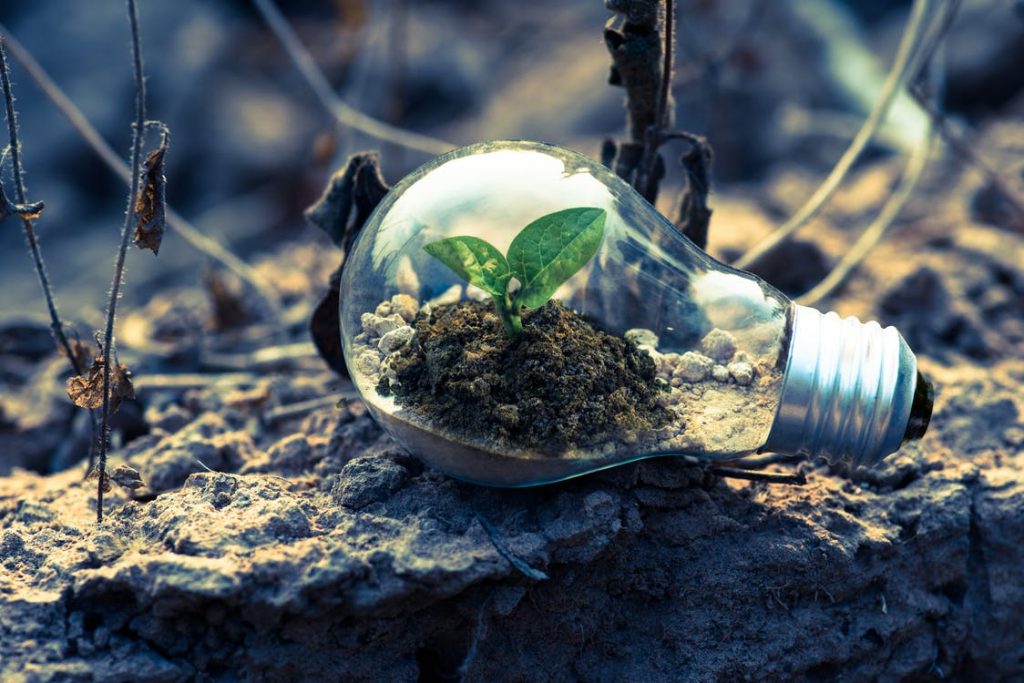How US Universities Study Environmental Sciences

Environmental studies explore interactions among the physical, chemical and biological components of the planet. This field helps us understand how to save the world we live in by addressing such issues as the human population growth and the activities that damage natural resources. The challenges our planet is facing affect everyone, so it’s extremely important to deal with them.
Educational institutions have responded to the current environmental situation, so now there are more than 500 schools in the United States offering degree programs in this subject area. Being an interdisciplinary field, environmental studies combine the natural sciences, economics, politics, sociology, demography and geography.
Usually, programs in Environmental Studies include a large amount of lab research and outdoor fieldwork. So, students can get a taste for the real-world applications of their curriculum. They don’t spend much time just memorizing facts from textbooks. Instead, according to environment essays by writingbros, students are expected to generate some realistic solutions to the most common environmental problems, such as pollution, sustainability and resource shortages. They have tasks related to solving climate change and biodiversity issues. To find effective solutions, they must be able to interpret research data and analyze statistics. Sounds quite interesting, doesn’t it? But let’s consider the exact reasons why more and more students choose environmental studies programs in the United States.
Why choose a program in Environmental Sciences

Make a difference
If you want to improve the world you live in, you can make a difference by pursuing a degree in Environmental Studies. The major in this field will help you reconnect with your surroundings and benefit the environment with your future work.
See the world
Another reason for choosing environmental studies is the ability to travel around the world. For example, NIU students have a chance to work in Mexico, Myanmar, Indonesia, Madagascar and New Zealand. This way, they can not only mitigate the human damage to the environment but also discover a lot of amazing things.
Get a deeper understanding of the world
Not everybody knows what happens to the garbage we put on the curb, how soil microbes affect people’s health or how climate change will influence the animals living around us. But you can find answers to all of these questions while pursuing a degree in Environmental Science. University education will give you a better understanding of our role in key environmental issues we face every day by environment essay examples for example.
A plenty of career options
With a degree in Environmental Science, you have a huge variety of career options to choose from. Your work can include everything from doing a statistical analysis to gathering plant samples in the field. You may also interview people about disaster preparedness or organize meetings with lawmakers to influence state policy.
Now that you realize how beneficial this field of study is, check the best Bachelor and Master environmental programs offered by US universities.
B.S. in Environmental Science by Northeastern Illinois University
This program is aimed at addressing different interactions between the environment and its components. In particular, it teaches about the impact of human activities on the planet as well as how the environment affects people. The program helps to understand the science behind environmental issues and possible solutions to them. Most importantly, this program promotes the development of a broad and solid scientific knowledge base in different areas, including geology, hydrology, biology, physics and chemistry. What’s more, B.S. in Environmental Science teaches effective collaboration and team skills that are vital to the environmental scientists.
B.S. in Environmental Science by Washington & Jefferson College
This program provides knowledge and tools required to engage with environmental issues caused by climate change, globalization and ecological degradation. The university’s mission is to graduate individuals who are environmentally literate, socially responsible and able to effectively solve problems. Students of Washington & Jefferson College must be agents of change for the benefit of nature and society as a whole. After completing this program, you will have all the necessary scientific, technological, and critical thinking skills to build a successful career. Additionally, independent research and internships give great opportunities for practical application of gained knowledge and skills.
MS in Climate Science & Solutions by Northern Arizona University
The goal of this program is to help students understand the physical nature of climate change. After graduating from it, you’ll be able to evaluate the social and economic consequences of climate change and analyze scientific information in this field. You’ll also have a chance to take part in a professional internship that promotes key skills required to pursue a career in the rapidly-growing climate industry. During 18 months of the program, you will directly apply acquired knowledge in organizational settings.
MSc in Environmental Policy and Planning by Tufts University
This program prepares the next generation of leaders, so-called ‘practical visionaries’ that will contribute to the growth of environmentally sustainable communities. It’s a perfect fit for students interested in policy, science, environment essays and research in the environmental sector. The curriculum covers five core courses, such as Foundations of Public Policy and Planning, Cities in Space, Place, and Time, Quantitative Reasoning, Field Projects: Planning and Practice and Economics for Policy and Planning Analysis. The first one provides an overview of basic elements of public policy. The course ‘Cities in Space, Place, and Time’ gives students knowledge about the history and theory of metropolitan regions. Quantitative Reasoning explains the basics of statistical analysis and research and helps to master related skills. In the course ‘Field Projects: Planning and Practice’, you will be exposed to practical planning and real research experience. And the last course called Economics for Policy and Planning Analysis teaches economic concepts and explains the most important tools of analysis related to public policy.
Author’s BIO
Ashley Boyd is a researcher at one of the top US universities. She studies how the environment is affected by the latest technological advancements. In particular, Ashley is interested in the ways of saving the planet with the help of technology.

“Evil coffee nerd. Analyst. Incurable bacon practitioner. Total twitter fan. Typical food aficionado.”




:quality(85)/cloudfront-us-east-1.images.arcpublishing.com/infobae/OF4NJDPGLBEYJAZ5XZMH3OIPJ4.jpg)



